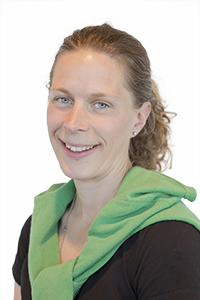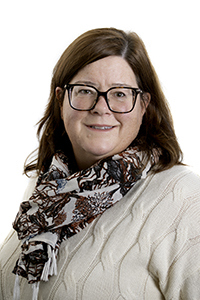Female genital mutilation - young women's life situation, health and well-being
Start date: 2022-01-01
End date: 2023-01-01
This is a preliminary study to understand the lived experiences of young women aged 18–25 years with female genital mutilation (FGM) and health care providers caring for them, in the Sjuhärad area, have related complications and have sought care. The present project is a part of a research area aiming to promote health and wellbeing for women and children exposed to violence. Other research projects aim to investigate Intimate partner violence and breastfeeding and ProChild: professionals compulsory reporting of child abuse.
Female genital mutilation (FGM) is a procedure performed on girls and women which involves the partial or total removal of the external female genitalia or other injury to the female genital organs for non-medical reasons. The number of females living with FGM in Sweden is approximately 38 000 (23) with 7400 of these being girls under the age of 18 years. It is estimated that since the increase in immigration in Sweden since 2015, this figure has increased. There are indications that approximately 19 000 girls are estimated to be at risk, with custodial parents who have a positive or ambivalent attitude towards genital mutilation, even after migration. A survey of the literature indicates that there are few, if any, scientific papers published on the experiences and health seeking behaviours of young women (aged 18 – 25 years) living with FGM in Sweden.
Our preliminary investigations reveal that young women with FGM do not present at the standard clinics that provide adolescent health services. The study will therefore find out from these clinics why they think young women do not use their services. We will also find out from the young women themselves where they go for treatment, what those problems are, and how they see themselves living in two cultures as young women with FGM.
The concept for this research project has come from healthcare providers to whom the young women should go for health advice and who feel ill equipped to provide treatment, care, and advice because they feel culturally inadequate and that they lack the knowledge and experience of meeting the young women's needs. Our research group has developed a collaboration with other important actors in Sjuhärad such as Borås Stad, Kvinno- och tjejjouren Borås and Elevhälsan. This collaboration has led to the awareness that FGM is an actual area of concern for girls and women living in Sjuhärad. However, there is a gap in knowledge of how many girls, women suffer from FGM, what it means to them to live with FGM and what care, and support is needed to improve their health and wellbeing. Research on FGM can contribute to knowledge that can ensure that women's rights are respected and protected. As a human rights issue affecting girls and women worldwide, calls for the elimination of FGM is a global concern. The United Nations General Assembly in 2012 adopted a resolution to intensify efforts to end the practice, and in 2015, the Sustainable Development Goals (SDGs) included a target under Goal 5 to eliminate all harmful practices, such as child, early and forced marriage and FGM, by the year 2030. This research project is an important example of social sustainable development and of social sustainable welfare, which aims to highlight and protect the rights of young women.
Our study fills a gap in the knowledge of the experiences of caring, counselling and communicating with young women living with FGM in Sweden today and can provide new data from the young women themselves and the care providers. These findings can enable us to develop context specific and culturally appropriate policies at the local level to improve the care of young women with FGM and equip those who care for them. In doing so, this study can contribute to improving the quality of care for young women with FGM-related complications and their sexual and reproductive health and well-being.



